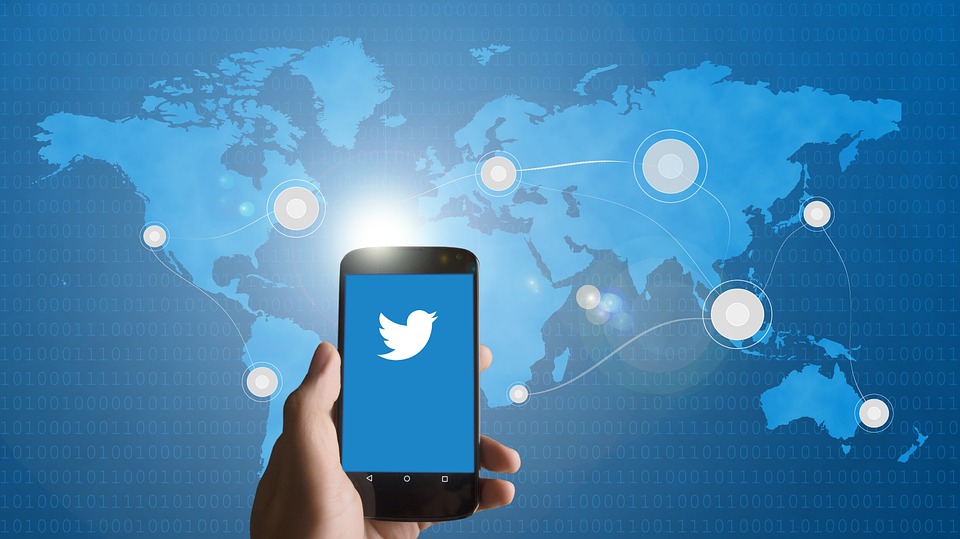Twitter-Ethics or Political Expediency?
November 6, 2019 | Expert Insights

Background
Artificial intelligence, message optimisation, deep fakes combined with targeted disinformation poses new challenges to political discourse. Cambridge Analytica successfully leveraged data resources allegedly to influence political outcomes such as the Trump election and the Brexit, in what was a purely commercial transaction.
In an era where social media influences public opinion and political outcomes, Twitter CEO Jack Dorsey has raised a storm banning political advertisements internationally from November 22nd. The timing is worth noting- just as the political season in the two major democracies-US and UK- starts heating up.
Twitter will make public a policy by November 15th which is expected to list some exceptions like voter registration and turnout.
Not surprisingly, the opposing camps in the US political arena reacted differently. Democrats welcomed the move as it will discourage big-budget political ad campaigning at least in one major platform, while the Republicans called it a “dumb decision”. Trump’s campaign manager, Brad Parscale, said, “This is yet another attempt to silence conservatives since Twitter knows President Trump has the most sophisticated online program ever.”
Analysis
Explaining his logic, Dorsey has said, “A political message earns reach when people decide to follow an account or retweet. Paying for reach, removes that decision, forcing highly optimised and targeted political messages on people. We believe that this decision should not be compromised by money”
Twitter had earlier blocked all state-backed media outlets from its platform in Hongkong to prevent its use for discrediting the protests.
This move comes at negligible cost for Twitter as political advertising is a small fraction of its revenue. Therefore, with little monetary pain, it gets to score a brownie point over its arch-rival Facebook.
As was expected, Facebook CEO Mark Zuckerberg took the opposite stand by shifting the onus on the users. He declined to ban political advertisement even if it carried fake information and has left it to the understanding of the user to determine what news is fake. Facebook stated that it is a tech company and will not bear the burden of determining the veracity of the information and it believes that it is a matter of free speech that must be protected.
It may be recollected that after the Cambridge Analytica scandal, Facebook had promised to fact check all the advertisements on its platform This exercise failed as fact-checking was outsourced to third parties and the ultimate credibility was questioned.
Social media platforms cull out data from their user base to identify target groups who would be susceptible to what kind of advertising in what is called micro-targeting. This has been the backbone of their huge earnings.
Political campaigns can benefit immensely from micro-targeting as they can focus on fence-sitters or opposition supporters. Micro-targeting prevents a balanced discourse and discussion around the false ads as these are automatically eliminated. This doesn’t give the opportunity for thought or even to question the information.
Counterpoint
Twitter’s ability to discern objectively between political and apolitical messages is under question. All human beings are political in one sense or the other, and all subscribe to a political ideology. We also tend to share our opinions and thoughts and it is highly questionable how exactly is Twitter going to control this.
Does a tech company which is a service provider be permitted to decide upon the content it carries without consulting the larger user base? This move could be detrimental to non- profits and grass-root groups who work on issues such as climate action, abortion rights and gay rights that are important for civil discourse but unpopular for big businesses.
Assessment
- Aristotle said “Man is a political animal," implying that politicking is, therefore, his right, being an integral part of the process. Denying access to an important medium goes against the grain of that belief, more so when the medium provider is taking the decision unilaterally without consulting the larger society.
- Influence of social media on public opinion cannot be underestimated. Compared to conventional print/ radio/ TV ads, social media ads are all-pervasive and have a huge outreach. While there may be some logic in Jack Dorsey’s stand that such reach should be earned not purchased, however, campaigners cannot leverage the data by just waiting for organic responses, they need to create content that will invoke reactions.
- Twitter intentions are ambiguous, more so because the financial dent is minimal. However, we need to wait for the guidelines before guessing upon the real reason for the ban.
- Facebook, on the other hand, has been more forthright in its Laissez-Faire policy as is expected from the arch-rival. But it's free to air all kinds of content attitude will bring it in direct conflict with governments across the world such as Singapore and India, who aim to regulate the content on social media platforms.
- Both Facebook and Twitter are adopting maximalist postures which need to be realigned. While political contents may be permitted on social media, there should be no tampering with the data such as micro-targeting and discerning specific interest groups using AI.
- The effectiveness of the platform can be seen in the manner it is exploited by President Trump to resonate his political messages around the world, something which otherwise would have cost him millions. Will Twitter ban his politically laced personal tweets also?
Read more
Image Courtesy: Analytics Insight








Comments